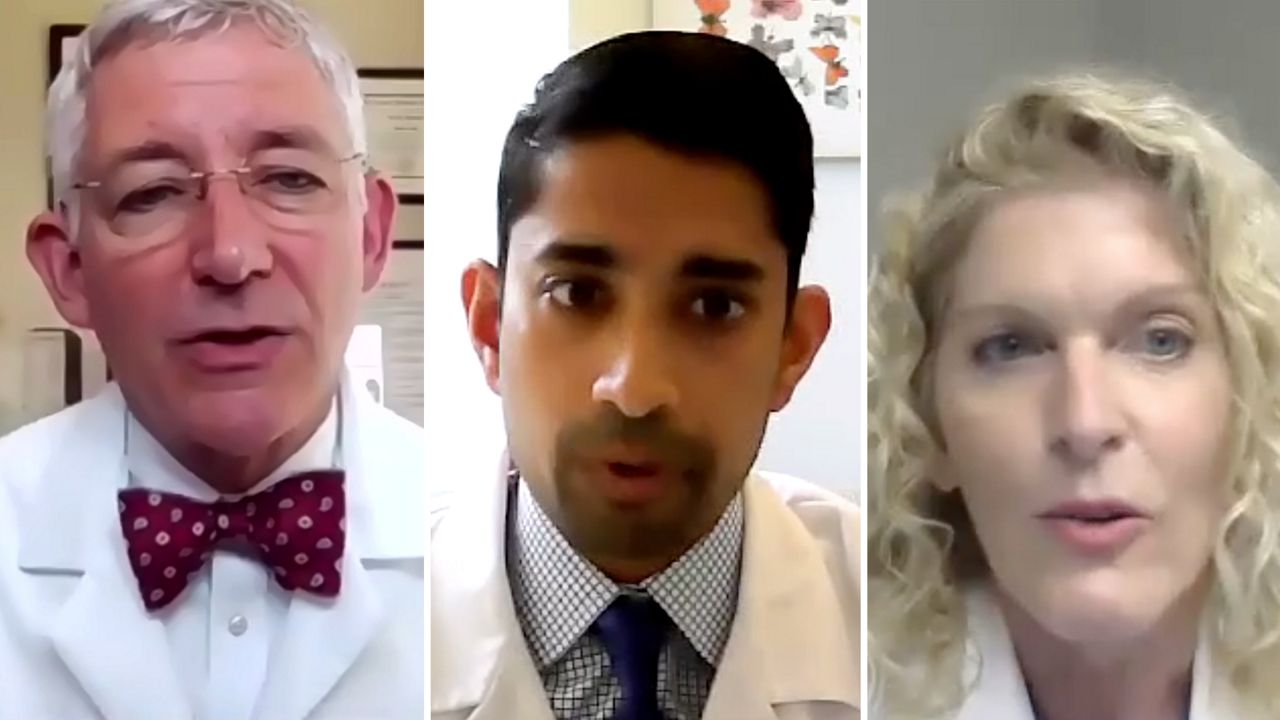COLUMBUS, Ohio — Ohio’s top doctor said Monday it’s hardly conceivable that a COVID-19 vaccine could impact fertility.
What You Need To Know
- Officials addressed COVID-19 vaccine hesitancy due to fertility concerns during a virtual news conference on Monday
- Dr. Bruce Vanderhoff, Ohio's Chief Medical Officer, said harmful internet rumors have circulated about fertility in recent weeks
- A Cleveland Clinic doctor said the vaccine isn't going to effect male fertility, while contracting COVID-19 does present fertility risks
Dr. Bruce Vanderhoff, the Ohio Department of Health’s chief medical officer, joined by an OBGYN and a men’s infertility urologist, said the COVID-19 vaccines have strong safety profiles with regard to fertility.
Meanwhile, for those who contract COVID-19, research shows there are various fertility risks, the doctors said.
Vanderhoff said the mRNA vaccines do not have any impact on the body’s DNA, a key flaw with internet theories that vaccines can affect fertility.
“After the administration of more than 300 million doses and more than six months of national experience, the Centers for Disease Control and Prevention has not reported any serious vaccine effects on reproductive health,” he said.
Vaccine hesitancy from parents and women of childbearing age in regard to fertility is unfounded, said Dr. Lisa Egbert, president of the Ohio State Medical Association and Paragon Women's Care OBGYN.
“There is no scientific evidence, nor is there a scientific pathway for there to be any ill effects towards fertility both at the time of vaccination and future fertility,” she said.
Hundreds of thousands of pregnant women in the U.S. have received a vaccine, and Egbert noted the American College of Obstetricians and Gynecologists recommends access to the vaccines for pregnant women. She recommends vaccination for her patients, explaining that pregnant woman are at higher-risk of complications if they contract COVID-19.
“There is significant increased morbidity and mortality to both mom and baby, if you have COVID during your pregnancy, so I can't stress enough if you're worried or scared about getting pregnant and getting the vaccine, please don't be scared about the vaccine. Be scared about getting COVID.”
The Cleveland Clinic's Dr. Neel Parekh, a men's infertility urologist, said research shows that COVID-19 infection can present risks as far as male fertility.
“It just makes no sense for anyone that's looking to get pregnant or interested in maintaining their fertility not to get the vaccine,” he said. “Certain viruses, illnesses like COVID, or the flu, smoking, those, in fact, can affect DNA fragmentation of the sperm, which can impair fertility, but not the vaccine he said.
The CDC is conducting a study examining male fertility and vaccination looking at whether there is impact to two sperm metrics, concentration and motility. Results of the study could be available by the end of the month.
The two main male fertility organizations in the United States, the Society for Male Reproduction and Urology and the Society for the Study of Male Reproduction both recommend vaccination be available to men desiring fertility, Parekh said.
In Ohio, vaccination rates are lowest among young people. Vanderhoff said it’s important for young people not to be spooked about the vaccines due to fertility concerns. He said they should seek medical advice from health professionals, not unreliable internet sources.
“Sadly, the internet is rife with misinformation. And as this false information spreads, it can cause many to be unduly concerned about receiving the COVID-19 vaccines,” Vanderhoff said.
